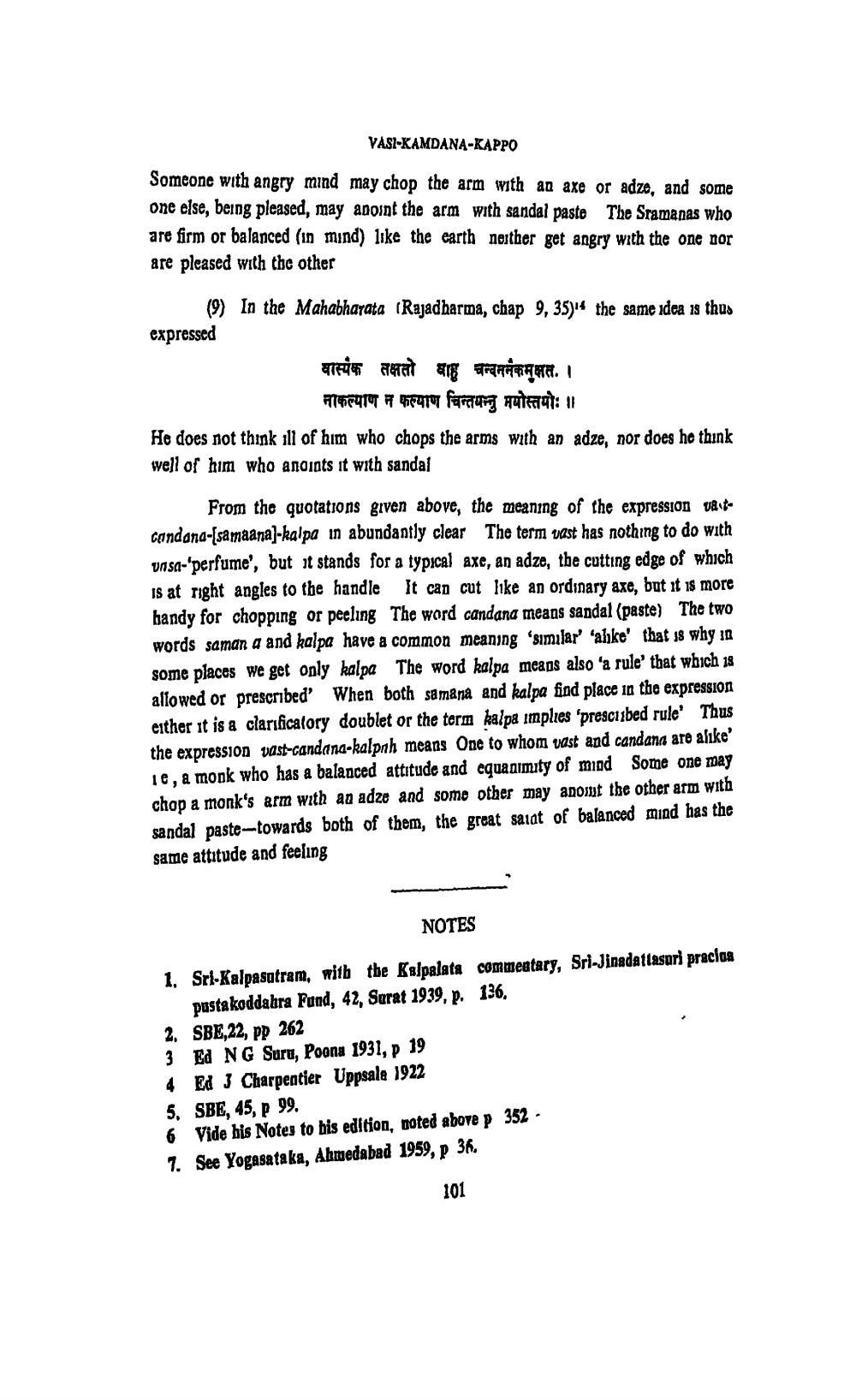________________
VASI-KAMDANA-KAPPO
Someone with angry mind may chop the arm with an axe or adze, and some one else, being pleased, may apoint the arm with sandal paste The Sramanas who are firm or balanced (in mind like the earth neither get angry with the one nor are pleased with the other
(9) In the Mahabharata (Rajadharma, chap 9, 35)' the same idea is thus expressed
वास्पक तक्षतो बाहु चन्दमनकमुक्षत. ।
नाकल्याण न फल्याण चिन्तयन्नु मयोस्तयोः ॥ He does not think all of him who chops the arms with an adze, nor does he think well of him who anoints it with sandal
From the quotations given above, the meaning of the expression ukit condana-samaana)-kalpa in abundantly clear The term vast has nothing to do with unsa-'perfume', but it stands for a typical axe, an adze, the cutting edge of which is at right angles to the handle It can cut like an ordinary axe, but it is more handy for chopping or peeling The word candana means sandal (paste) The two words saman a and kalpa have a common meaning 'similar' 'ahke' that is why in some places we get only halpa The word kalpa means also a rule' that which 18 allowed or prescribed' When both samana and kalpa find place in the expression either it is a clarificatory doublet or the term ka/pa implies 'prescribed rule' Thus the expression vast-candana-kalpoh means One to whom vast and candana are alike' le, a monk who has a balanced attitude and equanimity of miod Some one may chop a monk's arm with an adze and some other may apost the other arm with sandal paste--towards both of them, the great saiat of balanced mind has the same attitude and feeling
NOTES
1. Sri-Kalpasutram, with the Kalpalata commentary, Sri-Jinadattaspri pracias
pustakoddahra Fund, 42, Sarat 1939, p. 136, 2. SBE,22, pp 262 3 Ed NG Suru, Poona 1931, p 19 4 Ed 3 Charpentier Uppsala 1922 5. SBE, 45, p. 99. 6 Vide bis Notes to his edition, noted above p 352 - 7. See Yogasataka, Ahmedabad 1959, p 36.
101




